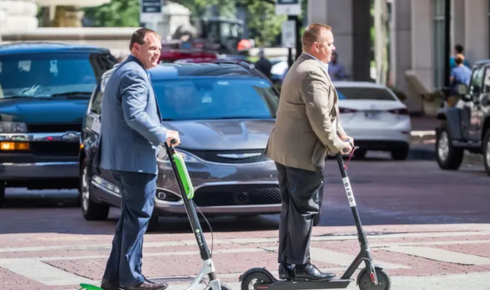Electric scooters and e-bikes have surged in popularity across Indiana cities, including Indianapolis, Carmel, Bloomington, and Fort Wayne. Riders enjoy the convenience, affordability, and eco-friendly nature of these transportation options. However, because scooters and e-bikes share roads with cars, pedestrians, and cyclists, it is essential to understand Indiana’s laws and how they affect safety and liability.
Scooter Laws in Indiana
Indiana law defines scooters as motor-driven cycles, which means they are treated differently from bicycles but not as strictly as motorcycles. Riders must be at least 16 years old to operate an electric scooter legally. A driver’s license is not required, but riders must follow the same traffic rules as other vehicles on the road. Scooters should be ridden in bike lanes when available; otherwise, they should stay to the right side of the roadway. Sidewalk riding is generally discouraged and may be prohibited in certain cities depending on local ordinances. Helmets are not legally required for scooters, but safety experts strongly recommend wearing one, especially for younger riders.
Electric Bike Classifications
Indiana recognizes three classes of e-bikes. Class 1 bikes are pedal-assist only, helping the rider while pedaling, and can reach speeds of up to 20 mph. Class 2 bikes have throttles and can operate without pedaling, but they also have a maximum speed of 20 mph. Class 3 bikes provide pedal-assist up to 28 miles per hour and are the fastest category. Riders must be at least 15 years old to operate a Class 3 e-bike, and helmets are required for riders under 18 on this type of bike. Unlike mopeds or motorcycles, e-bikes do not require licensing, registration, or insurance.
Where Scooters and E-Bikes Can Be Ridden
Scooters and e-bikes are allowed on public roads and bike lanes. They are generally treated like bicycles, which means they should follow traffic signals and yield when appropriate. Sidewalk use varies by city; Indianapolis, for example, prohibits scooter use on sidewalks in certain areas with heavy pedestrian traffic. Riders should also be cautious when entering multi-use trails or parks, as some trails have restrictions on motorized vehicles. Checking local ordinances is essential before riding in a new area.
Liability in Scooter and E-Bike Accidents
Accidents involving scooters and e-bikes can result in serious injuries. Determining liability depends on who was negligent. A driver who fails to yield to a scooter rider, a rider who ignores traffic signals, or even a pedestrian who suddenly steps into the path of a bike could all be considered at fault. Indiana’s comparative fault law applies, which means each party’s percentage of fault is considered when awarding damages. Riders should be aware that violating traffic laws may reduce or eliminate their ability to recover compensation in the event of an accident. Due to the differences in law, we suggest consulting with an Indianapolis scooter accident lawyer if you have been injured in a scooter or electric bicycle accident.
Insurance Coverage for Riders
One challenge scooter and e-bike riders face is insurance coverage. Most auto insurance policies do not cover accidents involving scooters or e-bikes unless a motor vehicle is also involved in the incident. Some homeowners’ or renters’ insurance policies may provide limited coverage if the rider injures someone else or damages property. Specialized e-bike insurance policies are becoming more common and may provide additional protection. Riders who frequently use scooters should consider exploring coverage options.
Safety Considerations
While not legally required for all riders, helmets significantly reduce the risk of head injuries. Reflective gear and lights should be used when riding at night, and riders should always obey speed limits and traffic laws. Because scooters and e-bikes are smaller and less visible than cars, defensive riding is essential. Avoid distractions such as headphones or cell phones while riding, and never operate a scooter or e-bike under the influence of alcohol or drugs.
Frequently Asked Questions
Do I need a license to ride an e-bike in Indiana? No permit is required for e-bikes, regardless of class.
Can I ride an e-bike on sidewalks? Local ordinances regulate sidewalk use, so the answer depends on the city.
Are helmets mandatory? Helmets are required for riders under 18 on Class 3 e-bikes, but are recommended for all riders.
Can I be ticketed while riding a scooter? Yes, riders can be cited for violations such as ignoring traffic signals or reckless riding.
What happens if I am hit by a car while on a scooter? You may pursue a claim against the driver’s auto insurance policy for damages.
Conclusion
Indiana’s scooter and e-bike laws are designed to strike a balance between accessibility and safety. Riders should be aware of the age and helmet requirements, understand where they can legally operate their vehicles, and always follow traffic laws. By staying informed and riding responsibly, scooter and e-bike users can enjoy the freedom of alternative transportation while protecting themselves and others.



